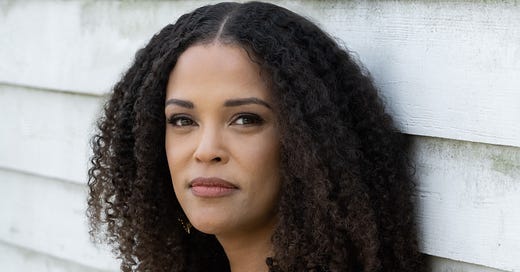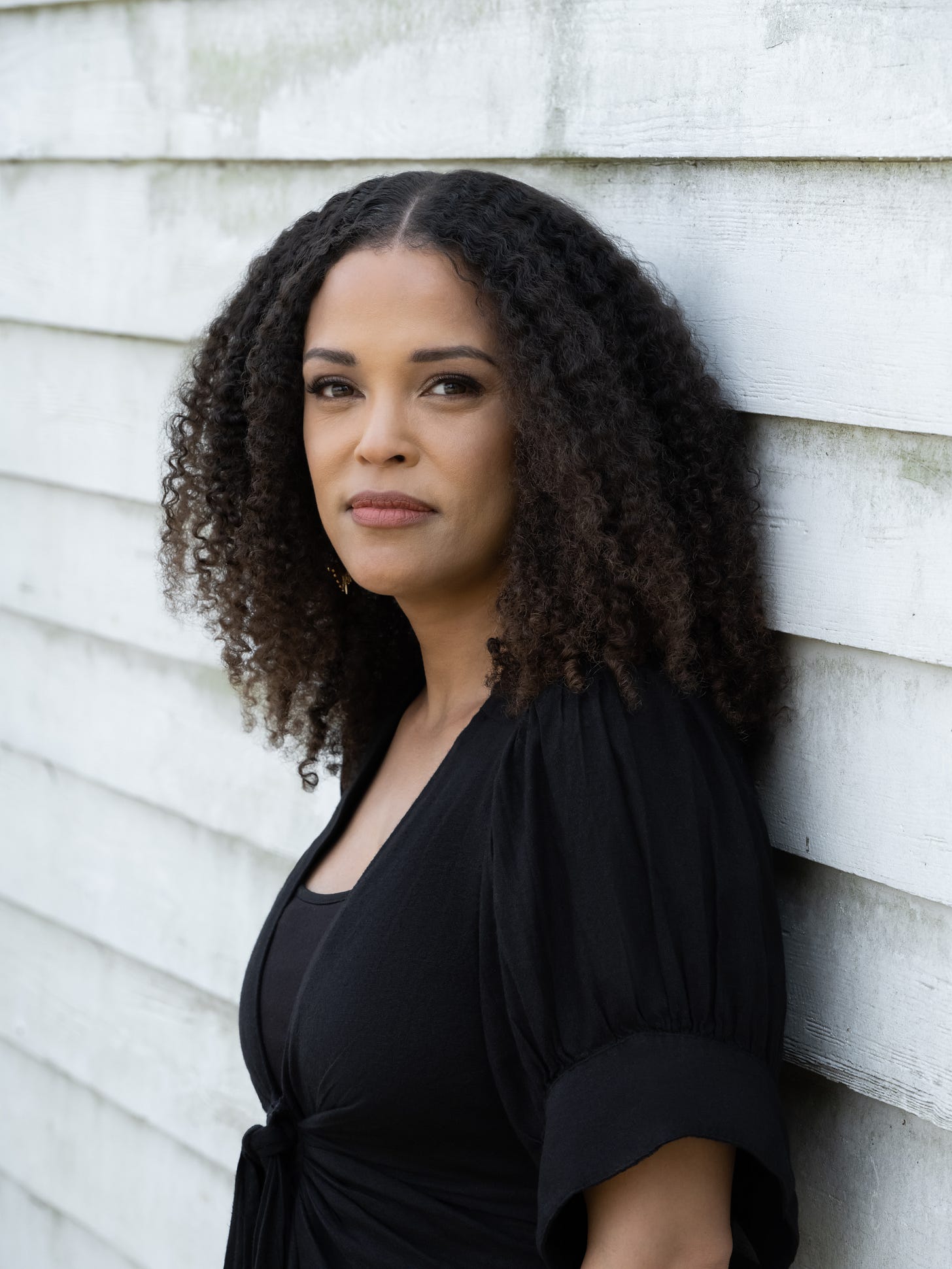Still This Light At The Center: A Conversation with Jesmyn Ward
On home, family, cats, racism and the body, trusting life, lineage, romance novels, self-tenderness, and the necessity of hope.
Intimate conversations with our greatest heart-centered minds.
I’m just going to say it: Jesmyn Ward is one of our greatest living writers. Her prose is lyrical, magical, razor-sharp, tough, tender-beyond-all-tenderness, forthright, just, veracious, tight, visionary, gentle, bone-rattling, vivid, playful, hope-ridden, joy-ridden, righteous-ridden, smooth and cool as running water. It is truth. She’s a master storyteller—whether it’s her own story or those of the myriad characters who live in her beautiful heart and mind.
Jesmyn has twice won the National Book Awards for Fiction, first for Salvage the Bones and then Sing, Unburied, Sing — the only woman or Black American to do so. She is also the author of the novel Where the Line Bleeds and the memoir Men We Reaped (one of my favorite books on the planet).
Most recently, she’s written Let Us Descend which follows an enslaved girl’s journey, after her sire sells her, from the rice fields of the Carolinas to the slave markets of New Orleans to sugar plantation in Louisiana and beyond. The writing is exquisite. The story harrowing and yet also transcendent. It was a New York Times bestseller and an Oprah’s Book Club pick.
Jesmyn is Professor of English at Tulane University and a MacArthur Fellow. She lives in DeLisle, Mississippi.
It was an absolute dream to speak with Jesmyn! I’m eager to hear your thoughts in the comments.
⭐️ Jesmyn is generously gifting three readers an autographed copy of Let Us Descend! If you’d like to be one of the recipients, please add “Descend” after your comment. The winners will be chosen at random on Monday, September 9th and notified by Substack Direct Chat. Shipping is limited to the United States. ⭐️
Here’s Jesmyn reading from the first chapter of Let Us Descend. So beautiful.
You write so much about home: leaving it, returning to it, misunderstanding it, despising it, seeing it anew. It seems to me, every story is the search for it. What does home mean to you — internal and/or external?
The external definition of home would be South Mississippi. Like all places, it is its own. I served as the Grisham writer in residence at Ole Miss for a year in my thirties, and Oxford is in North Mississippi which is a very different place than South Mississippi. I say that because of the specific trees and plants. And then the landscape that figures a lot in my writing that is suffused with water. I live on the Gulf of Mexico. There are lots of rivers here that feed into it. There are bays. There are also bayous and swamps throughout. So it's a very wet, sandy, boggy jungle-like place.
Externally, home is also defined by the people who are here, specifically my family, my extended family, my community. They've all informed my understanding of who I am. Of what I've lived through. Of what the people who came before in my family and my community have lived through. That makes me very mindful in the present of the strength of the ties within the different generations in my family, and within the different generations in my community.
As you probably can imagine, as a Black woman this can be a difficult place to exist. And that is part of home, too. That is also something that I have to reckon with on the page whenever I'm writing about home.
That feeds into how I feel internally about home and about this place. As I get older systemic racism is becoming clearer and clearer to me. I've internalized a lot of that systemic racism combined with the interpersonal racism that I've experienced in my life, especially when I was younger, so that complicates my relationship to this place. It makes it so that at the same time that I love home there's also a lot that I struggle with.
I think that I'll continue to struggle this idea of home and the different meanings for me of home in my writing because it's something that I haven't necessarily figured out in my life. I've spent all my life thinking about, “What is home? Is there only one definition of home? Is there a certain definition of home that you can return to one day?”
Listening to you speak about your profound connections to Mississippi, I was thinking I was born and raised in Michigan, but I lived in New York City for twenty-five years. I came back here because my parents were getting older and I wanted to be closer to them. But this has never felt like what you're describing when you talk about Mississippi.
My parents are both from London. I have a bajillion cousins and aunties and uncles in England and I grew up not knowing them. But I can still remember the first time I went to England when I was eighteen, the moment the plane touched down at Heathrow and I thought, “I'm home.” So I wonder if part of it is the blood—for better or worse, because sometimes family is very fucked up. But the draw of the blood. Do you feel like as long as you had your children and your partner with you, you could live in, say, France and that would be home? Or do you also need the land as part of it?







